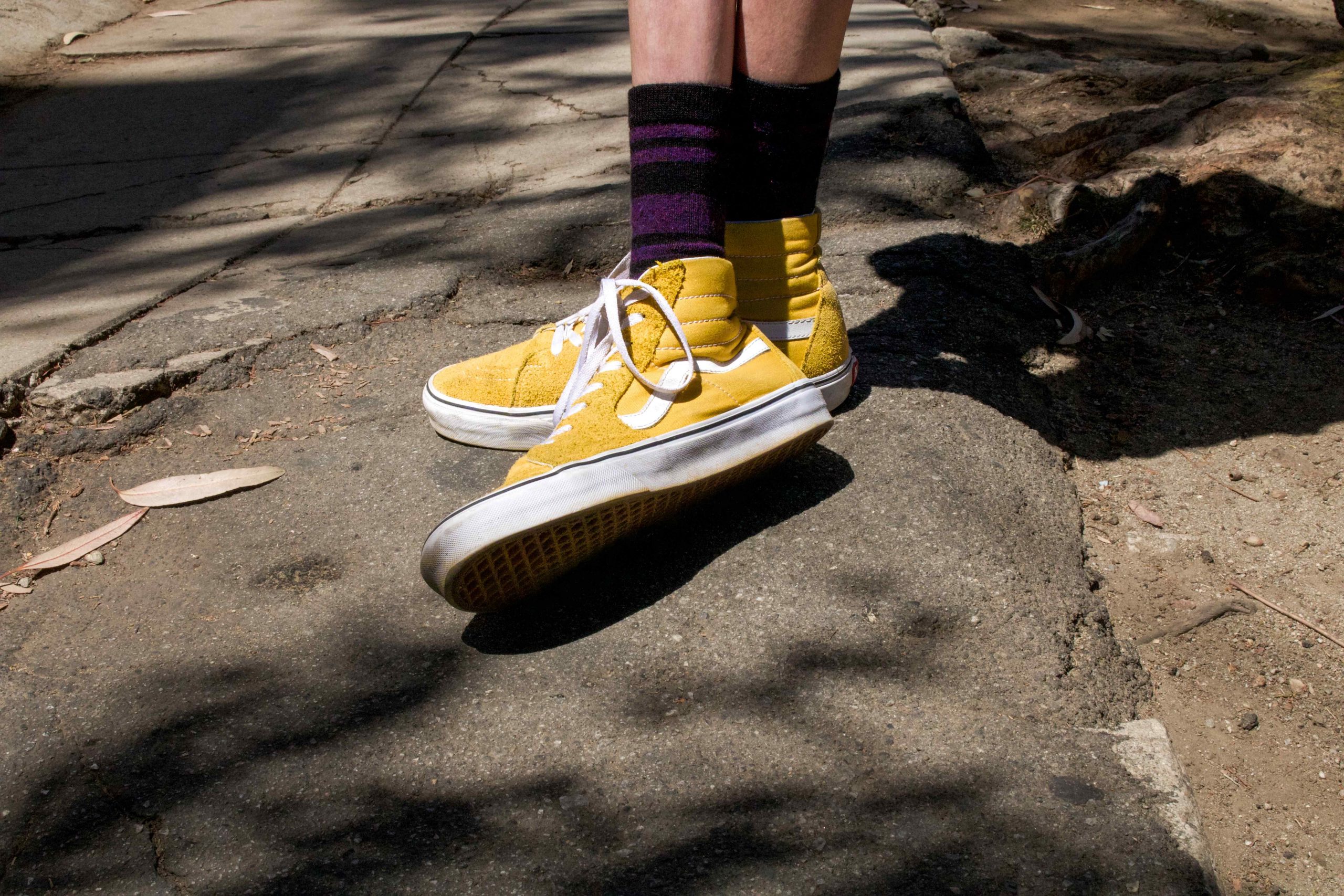Photo by Christopher Ikonomou/OutWrite
This article was originally published in our Internewsmag 2022 print issue “Los Angeles.”
Content warning: ableism
UCLA made me disabled.
Don’t get me wrong, I’ve been ill my whole life. I was diagnosed with Marfan Syndrome at 18 months old, a rare genetic disorder that makes my connective tissue more elastic and prone to spontaneous breakage. I hear from every medical professional I see that I am a textbook marfanoid; there was even a photo of 6-year-old me on The Marfan Foundation’s “Signs & Symptoms” page for a decade. I am a literal poster child for my condition.
Suffice to say, I have never known any other body than a chronically ill body. I was hospitalized 10 times in high school for spontaneous illness-related issues, from multiple lung collapses to a mean case of septic shock. Naturally, I faced bullying and isolation throughout my entire life for existing as visibly ill. But nothing, and I mean nothing, hit me as hard as stepping onto the campus of my reach school as a new admit and thinking “I don’t think I can do this.”
It’s not that I didn’t think I was smart enough or that I didn’t deserve my place at UCLA. Much like my syndrome, it was a collection of things I only realized as I went through them firsthand. Let’s take my freshman orientation in 2019 as an example. The first task I was expected to complete after hugging my parents goodbye was carrying my suitcase up the aptly-named Death Stairs (four flights of steep, outdoor stairs to most of the dorm buildings) without any offered assistance. The next day, we embarked on a four hour campus tour with no acknowledgement of its inaccessibility besides humorous glibs at how tired students get walking home from class; there was never an offer of rest or to use an elevator to skip the over 100 stairs required to get from one side of campus to the other. The nail in the coffin was the bonding activity that night: a campus-wide scavenger hunt race in the middle of the night and, even worse, explaining to my roommates why I wasn’t going.
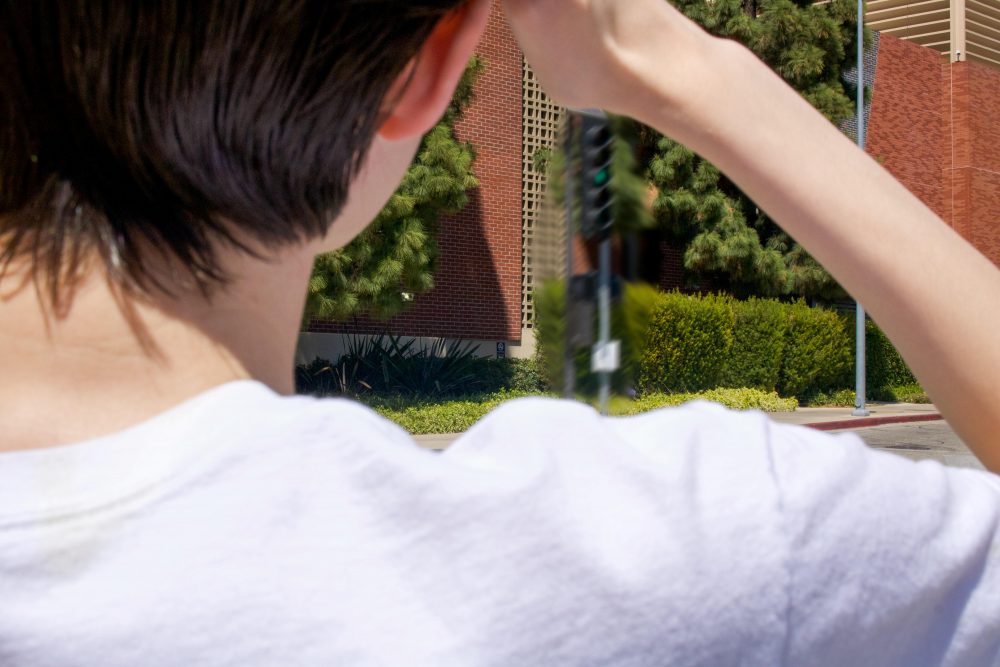
As expected (and dreaded), orientation was just foreshadowing to the college experience. Most every stoplight on and around campus has no auditory indicators and the curb cuts guide blind and visually impaired students like myself into the middle of crowded LA intersections. As a low vision person, navigating campus at night with the amount of unmarked and unlit stairs everywhere is a death wish. Every street surrounding my apartment is pocked with cracks and potholes and every sidewalk is near unwalkable from overgrown tree roots disrupting the concrete and discarded furniture and electric scooters crowding the way; my flat feet and pronated ankles struggle to keep my face peeled off the ground.
Pre-pandemic, the BruinAccess Van (a complimentary rideshare service offered by UCLA’s Center for Accessible Education) ran a tight schedule set at the start of each quarter; if you missed your ride, you were shit out of luck. I vividly remember being stranded one day after leaving late from a class, then trekking up Bruin Walk to the bottom of the Covel Commons stairs. After I looked up the oddly long steps to the Death Stairs, thinking of the four more flights past those to get to my building, I sat at the bottom of the steps and cried.
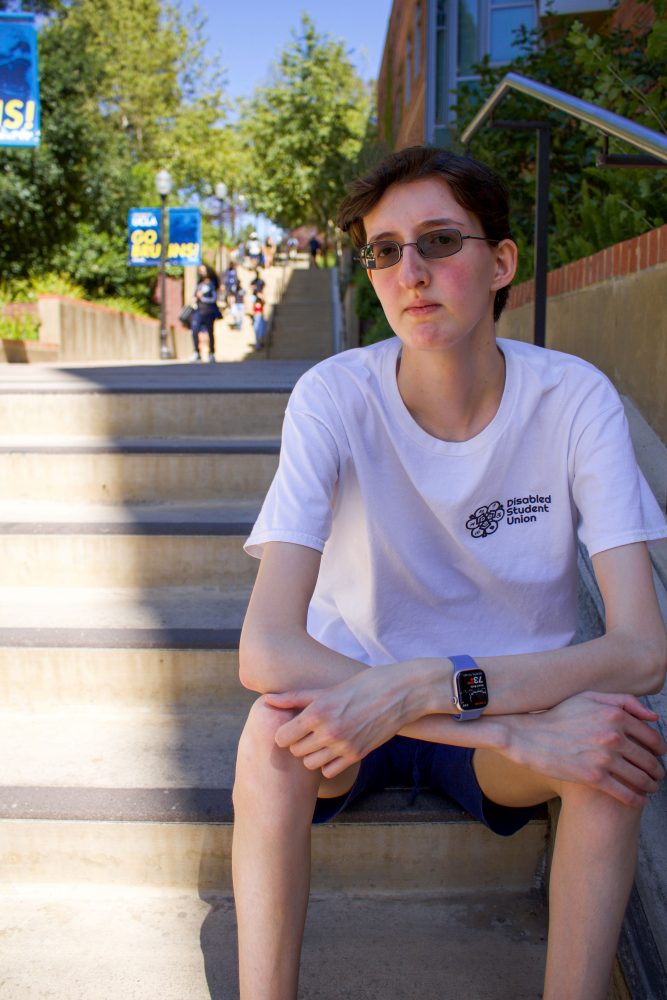
Perhaps even worse than the physical inaccessibility is the normalized ableism within the student body. In an alternate universe where I did successfully make the trip to my dorm in less than 45 minutes without feeling like my heart was jumping out of my mouth, I imagine scratching half a dozen dirty looks off my back when I dared to take the elevator to get to the third floor. The judgment was palpable enough that RAs put signs up reminding people that “it’s just a fucking elevator, can you guys chill?” (or at least that’s how I wish they were worded).
The ableism isn’t just passive, either. I cannot explain the humiliation I felt after hearing “Sorry I’m young, fit, and healthy” from a new friend for telling them you can’t take the stairs. Nearly every person I met freshman year instilled a deep shame around asking for help to the point where I felt suffocated. I wish I could tell you I didn’t feel pathetic asking someone for their seat while waiting for my food in a dining hall; for a long time, I just sat on the floor. (I would get into attitudes about the disabled and immunocompromised community during the pandemic, but we’d be here for longer than the 16-day Murphy Hall Sit-In.)
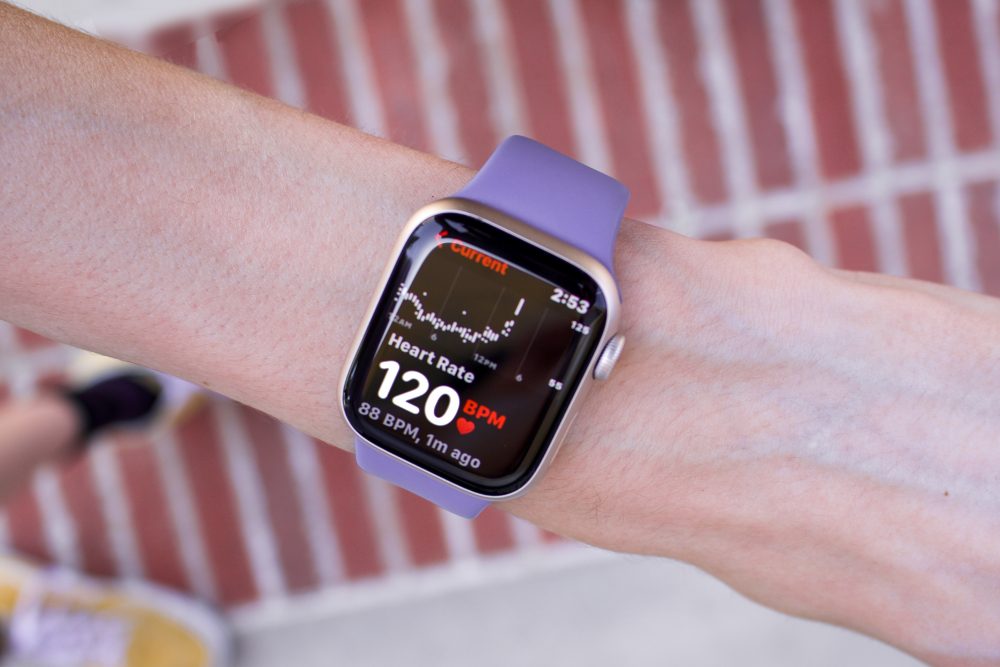
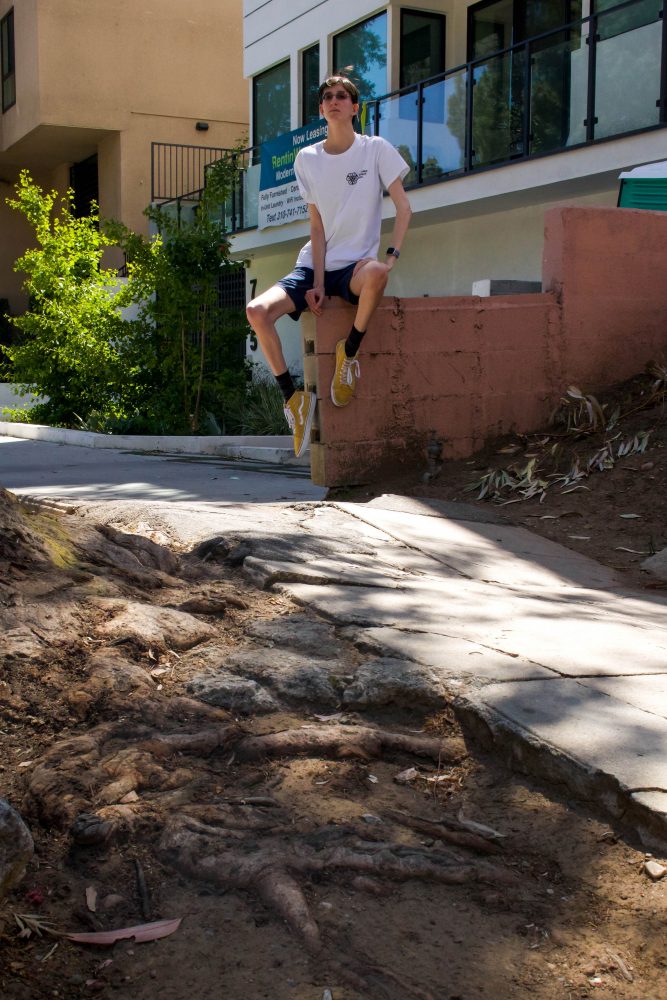
It may be too late to convince you, but being disabled at UCLA isn’t all bad. I was lucky enough to find a roommate who doesn’t judge me when I walk slowly, ask to rest, or need help reading something; he often offers, knowing how much I struggle with asking for help. My experiences at UCLA have also pushed me to come to terms with my disabled identity as integral to my humanity, encouraging me to express myself in creative work for the world to see.
And perhaps the most important thing to happen to me here is finding the Disabled Student Union in the summer after my freshman year. Suddenly, I was no longer alone. My voice was amplified by the hundreds of students who feel just like I do and refuse to be silent about it. I became an activist, a student leader, fearless against ableist mistreatment because I am willing to protect my found community with all I have. I would not trade the love and support I’ve found at the DSU for anything, nor can I discount the beauty of the intersectional connections I’ve made with other student organizations fighting the same fight. I am grateful for the Mother Organizations Coalition showing me what it truly means to be an accomplice working toward a better world.
UCLA tries its hardest to suck the hope out of marginalized students. I can now proudly say I am here to spit it back in their faces.
Credits:
Author: Christopher Ikonomou (Xe/He)
Artist: Christopher Ikonomou (Xe/He)

